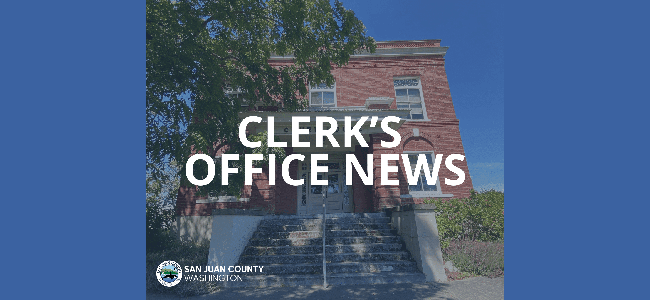— from Amy Nesler for San Juan Islands Visitors Bureau —
“The best education I have ever received was through travel.” – Lisa Ling, American journalist and TV host
National Travel and Tourism Week, May 5 – 11, is the annual salute to the positive effects of travel in the U.S. 2019’s theme of “Travel Matters,” The San Juan Islands Visitors Bureau is taking this opportunity to examine what travel means to San Juan County, today and in the future.
Regardless of age, when asked what adults would put on a bucket list of things they wish to accomplish, 88 percent of Americans placed traveling to new places at the very top, and most children (61%) say the best way to spend quality time with parents is on vacation.
Here in San Juan County approximately 2,300 jobs are directly related to the tourism industry.* Think back to your first job. Maybe you worked at Rosario or Roche Harbor Resort, or maybe your kids work there now. For many – one-third of Americans to be exact – travel is the front door to a promising career.
With tourism occupying such a significant percentage of the San Juan Islands economy, this is a golden opportunity to add sustainability to the mix of what attracts visitors from around the globe. A recent report from Booking.com shows that 87% of travelers want to travel sustainably. There’s no time like the present to evaluate our current standards. It’s also the perfect time to reflect and comment on what our vision is for tourism, while our county comprehensive plan is being updated.
The San Juan Islands Visitors Bureau and the Islands’ tourism industry recognize that the economic vitality of tourism is only sustainable if our natural beauty, rural character, and watchable wildlife are preserved. A recent tourism impact study by our local land managers supported the fact that visitors come here primarily to take part in low-impact outdoor activities.
The San Juan Islands Visitors Bureau is the official destination marketing organization for San Juan County and Town of Friday Harbor. It represents over 300 island businesses representing local history, arts, outdoor recreation, agri-tourism and visitor education. Mostly funded by lodging tax paid by the visitor, it also receives business membership dues.
*According to the 2017 projections made in the latest Dean Runyan Associates Travel Impacts and Visitor Volume Report
**If you are reading theOrcasonian for free, thank your fellow islanders. If you would like to support theOrcasonian CLICK HERE to set your modestly-priced, voluntary subscription. Otherwise, no worries; we’re happy to share with you.**







Well written puff piece Amy. I personally could do with less… not more. When is the week for acknowledging the downsides of to many?
MJ – We concur! We came here in 1992, to complete a B&B project that fell victim to unanticipated construction/weather-related expenses. We opened in 1993. At that time, there were about 12 waterfront businesses similar to us. We were fortunate to have drawn in immediate clientele, and a 1994 article including us in a New York Times weekend edition was blockbuster for us. And now, over 60 legal establishments, and a salaried local agency, advertise the San Juans to a worldwide audience. Yikes!
We were lucky here. And we still cherish the experience. The remaining questions now revolve around how best to accommodate the increasing clientele, realizing the long-term local impact. We shut our own B&B down in 2008, retaining a single rental, but the tide is upon us all, and this is a watershed conversation.
Michael, we hear your apprehension, and we share it!
Agreed. A certain amount of tourism is acceptable but when it causes significant impacts on quality of life and strains the supply of affordable housing and local services like processing garbage, water resources, and sewage/septic systems we need to establish common sense limits. We need a moratorium on vacation rentals to sort this out.
Yes.
“Tourism” has frequently been the magic Fix-All to struggling local economies all over the world. But what is the value proposition we are making.. to visitors and to our own community? Are we actively preserving what draws them and drew us here, or actually paving it over to make it more and more accessible thus commodifying it to be similar to everywhere else that wishes to attract this generic transient customer base.
How do we monetize paradise? and is it then still paradise?
One of the observations about global climate change viz the changing seas is that tough minimal adaptive critters survive and dominate and beautiful diverse fragile niche dwellers disappear forever. Seagulls and algae everywhere, nudibranchs and orca gone. Are we going to adapt by becoming more specialized and human and beautiful? Or by becoming more successful, toughened, and generic.
Bring in bigger plane loads of people with more cash, while cutting the trees and shipping off our children to colleges and careers and dreams bigger than “Whales – Guaranteed!!” and living in the shack behind the VRBO.